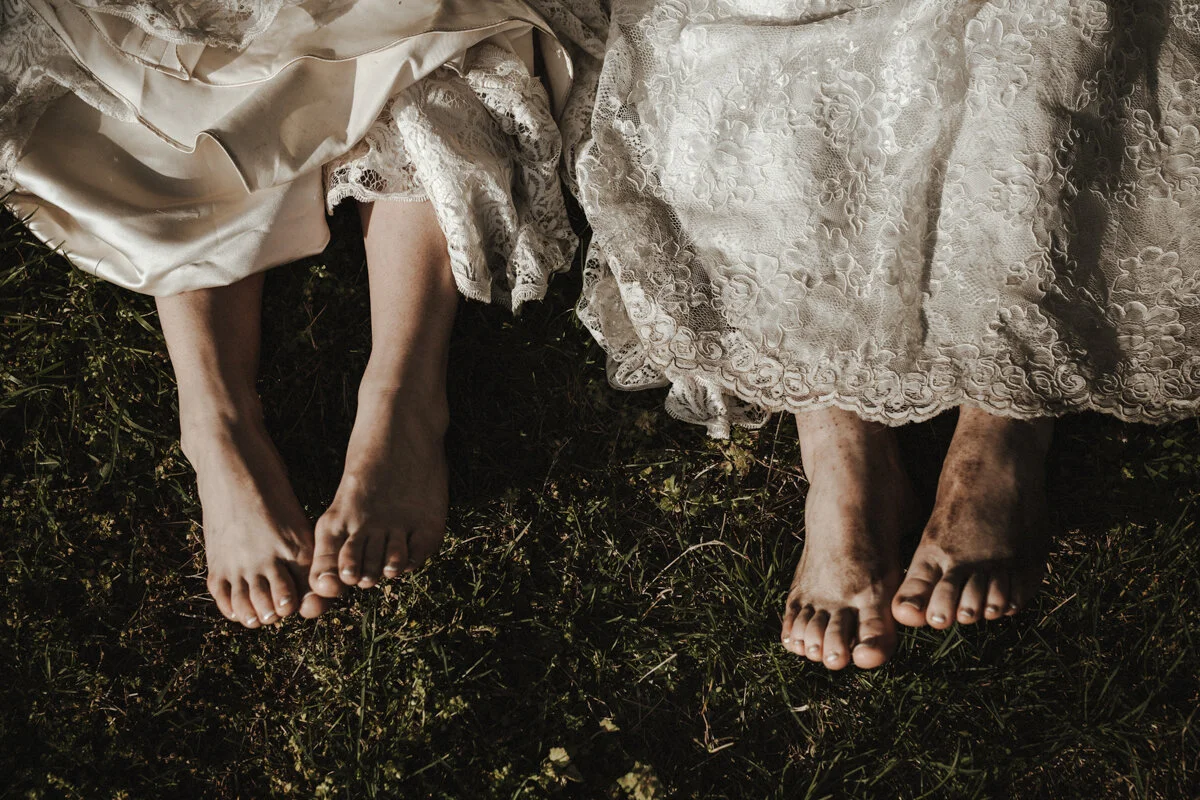Your Wedding Might Be a Good Time to Reconsider Other Unhealthy Relationships
/Photos by Betty Clicker Photography
“I asked your wedding planner where we could score pot, but she didn’t know. Do you?”
This was the message I received a few weeks before my wedding in Bali, from my bridesmaid and best friend of 20 years. I cringed when I read it, turning my computer screen so that nobody would see. My fiancé and I had been living in Asia for more than six months, and we knew how serious the drug laws were.
Instead of writing back to say what I thought — Don’t ask my wedding planner about drugs! What’s wrong with you? — I wrote back, “Sorry, I don’t know. But I can’t wait to see you!”
Conversations like this had been happening for as long as we’d been friends. Laura would say something inappropriate to a mutual friend or an acquaintance, or she’d say something insensitive to me, and I’d look the other way, preferring to avoid the drama. After all, we were better at keeping things light.
We met when we were both 13, at the start of high school. I’d just gotten emancipated from two years in a back brace to correct my scoliosis and had incredibly low self-esteem. Making friends intimidated me, so I typically spent time alone or sought out friends who talked more than me so that I wouldn’t have to reveal too much of myself.
New beginnings are often marked by the final acts of something else. And saying "goodbye" to an old, toxic relationship was my way of saying "I do" to the ones that count.
Laura was perfect in this regard. She was energetic, opinionated about everything, and loved to talk about herself. And she was hilarious. Making new friends came naturally to her, and she moved through social circles easily, so I tagged along through the years. When we were a bit older, we filled the space where we had nothing to talk about with glasses of wine, pot, and nasty gossip about people we didn’t know that well. She depended on me to listen to her boyfriend troubles. I depended on her to make me laugh.
But when big things happened — my college graduation, my engagement party, my grandmother’s funeral — she’d either show up late or not at all, and there would be silence for months. Then someone we knew would throw a party or one of us would suffer a breakup, and we’d reconnect over bong rips or too many shots of tequila.
When I was planning my wedding, Laura and I hadn’t lived in the same city for seven years. While she was in L.A. working as a costumer, I was gallivanting around the globe. My constant movement made building friendships almost as hard as it had been when I was younger, but I always tried to make an effort to see Laura when I was in L.A. visiting my parents, even though they lived an hour apart. I’d often borrow a car to see her because she always had a good excuse for not driving—she’d been working late, she was out of gas, or she didn’t want to drive home drunk.
When I told my fiancé I’d designated Laura as one of my bridesmaids, he was surprised.
“You two aren’t that close anymore, are you?”
“Not really,” I said. “But we’ve been friends for so long.”
To be honest, I wasn’t even sure she would make the trip, but I didn’t want to hurt her feelings by not including her. For months, she avoided giving a definitive RSVP, until I pieced together that her real concern was whether or not she’d be able to convince her new boyfriend to come with her.
In the weeks leading up to the wedding, while I was stressing over my budget and last-minute details, she sent me rambling messages about her plans — Should I go white water rafting? Is it worth it to spend time in Ubud? Are drugs really that hard to find?
I politely told her how busy I was, hoping she’d get the hint and offer some support. I also hoped that when she arrived, things would be different. She’d be there for me. She’d understand. But this didn’t happen. After she arrived, she was a no-show at all the pre-wedding activities I’d planned, preferring to go snorkeling and clubbing with all the new friends she’d made on the plane.
“But I’ll be there for the big day!” she assured me.
It was when she didn’t show up for hair and makeup that morning that I realized something. And the clarity of this realization quickly defused the anger that was starting to build inside. Laura and I weren’t growing apart. We’d actually never really been friends.
“Don’t worry, I can do my own hair and makeup!” she said, finally strolling in just before the ceremony began.
These moments may have been comedic gold in the past, but I wasn’t laughing anymore.
I nodded at her and then turned my attention elsewhere. But our friendship didn’t end right then and there. She walked down the aisle with the rest of us. She stood beside me when I exchanged my vows. She posed in all the group shots. It wasn’t until she gave a tipsy toast, where she joked about what a “slut” I’d been in college and then fell off the stage, that I knew I finally had to do my part. I had to take action.
These moments may have been comedic gold in the past, but I wasn’t laughing anymore. There comes a point where slurred speeches and forgotten dates and self-absorption are no longer funny. And maybe they never were. Maybe that’s just what I thought I deserved.
I went over to her and told her goodbye, although she was too drunk to understand what I was saying. It would take a long conversation later to explain why we had to break up.
What I had finally realized that day, clinking glasses with my husband and looking at my new family and friends, was that there was no better time than now to let Laura go. New beginnings are often marked by the final acts of something else. And saying goodbye to an old, toxic relationship was my way of saying I do to the ones that count.
This article originally appeared in Volume Two of Catalyst Wedding Magazine.
Erica Garza is a writer from Los Angeles. Her essays have appeared in Salon, Narratively, Refinery29, Bustle, HelloGiggles, and Mamamia.
























